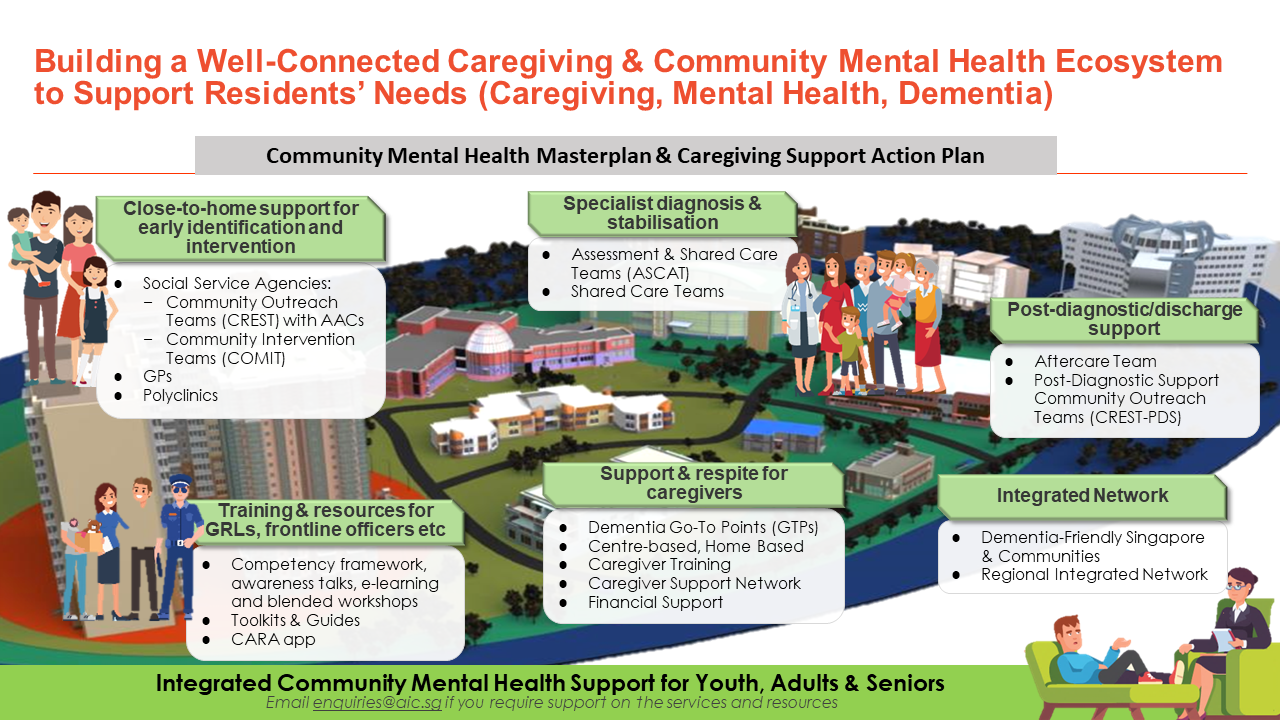About the Community Mental Health Masterplan
Since 2012, the
Agency for Integrated Care (AIC) has been appointed by the Ministry of Health (MOH) to develop the Community Mental Health (CMH) Masterplan. The plan focuses on working closely with the health, social and community care partners to build an integrated mental health network to better support for persons at risk of or living with mental health issues, including dementia, and their caregivers in the community.


